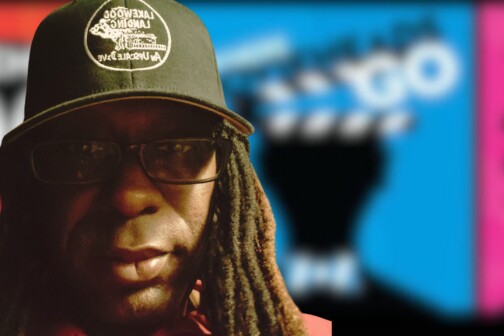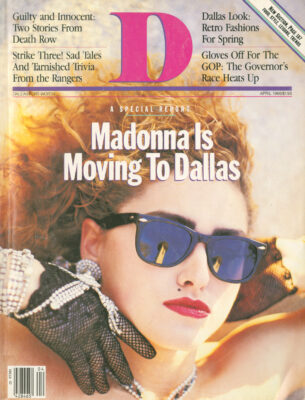Reality, April 1986: As of this writing, no major league team has shown any interest in signing Al Oliver, the best hitter the Texas Rangers ever had. At the age of thirty-nine, he seems to be finished. Even if he catches on with a team as a pinch hitter or designated hitter, he has failed in his long quest. At the end of the 1985 season (capped by his winning two playoff games for Toronto), Oliver was still 257 hits short of becoming the seventeenth player in history to amass 3,000 hits.
If you’re not a baseball fan, hang on for one more paragraph. Oliver’s story is more than stats and baseball trivia. What happened to Oliver is a story of innocence lost, and of the transition of the pastoral game of baseball from a sport to a cutthroat business.
I was wrong four years ago but I had a good excuse. I had just spent a week interviewing Oliver, then an outfielder and DH for the Rangers, and he had sold me absolutely on one indisputable fact: he was one of the greatest ballplayers who ever lived. He had all the gifts-strength, timing, great eyesight, uncommon desire to hit the ball. But something else, too: confidence, enough confidence to outfit a legion of motivational speakers with enough left over to scale Everest blindfolded.
And that’s why it is so hard to close the book on Al Oliver, and why the end of his career is poignant and puzzling. Somehow, it goes against the optimistic credo of this country when an extraordinary, gifted man, armored by an iron belief in his own powers, falls short of his goal. We are told from childhood, by parents and teachers and movies, that the key to success is believing in yourself. “You gotta have heart” the players sing in Damn Yankees. Al Oliver had heart to spare. What went wrong?
The easy answer is that time caught up with him. As Roger Kahn reminds us in The Boys of Summer, a ballplayer must suffer two deaths, the first between the ages of thirty-five and forty. To the layman, he looks strong and fit. and by civilian standards, he is. But what Kahn calls the major league reflexes are fading: When most of his classmates are newly confident and rising in other fields, he finds that he can no longer hit a very good fast ball or reach a grounder five strides to his right. At thirty-five, he is experiencing the truth of finality. However he sprang, he was always earthbound.
Maybe that’s all it was, just the slow rusting of the years that stopped Brooks Robinson and Carl Yastrzemski and Al Kaline and, someday, will stop even Pete Rose. Still, Oliver seemed different, stubbornly durable, timeproof. He was past thirty when he came to Texas from the Pittsburgh Pirates in 1978. For the next four seasons he was most of the Rangers’ offense, hitting .324, .323, .319, and tailing off to .309 in 1981. Most players would trade a grandmother for those numbers and for Oliver’s lifetime batting average of .303 in eighteen seasons. Among active players with more than fifteen seasons in the game, only Rose, the incomparable Rod Carew, and Oliver have lifetime averages above .300.
Perhaps no great athlete ever believes, deep in his heart, that he will lose it. Maybe that’s not so surprising. When a man has been a star as long as he can remember, how can he believe that the mysterious gifts will vanish, leaving him an ordinary man?
For Oliver, failure and defeat were words from a foreign language. Early in his career with the Pirates, he teamed with Steve Blass, a fine pitcher in his prime who, suddenly and for no apparent reason, just fell apart. One day Blass was an effective, reliable pitcher; almost overnight, he couldn’t gel anyone out. What happened to Blass is one of the great mysteries of baseball, and Oliver saw it happen. But when I asked whether he ever worried about a similar fate, he didn’t just say no; he seemed dumbfounded, incredulous, as if I had suggested that he might grow wings and fly to another planet.
In 1982, Oliver was traded to Montreal. There was talk that Texas considered him washed up. Maybe he wanted to make the Rangers rue that trade; at thirty-five, lacing a new league and new pitchers, he had his best year ever, leading the National League in average (.331), hits (204), doubles (43), and runs batted in (109). He also smacked twenty-two home runs, his career best.
Why would the Rangers trade their best hitter? No doubt Oliver’s age had something to do with it, but there was more. A player with ten years in baseball and five years with the same team gains considerable power over his own destiny; for one thing, he can veto any trade he doesn’t like. Had Oliver played one more season with the Rangers, he would have had his ten and five. So, exit Oliver, and déjà vu. The same thing had happened to him in Pittsburgh, where he started his career. He loved the city, played there for nine years. When he had a chance to become a free agent and sell himself to the highest bidder, he chose to sign a new contract with the Pirates. Loyalty. And when he was on the brink of ten and five, the Pirates returned that loyalty by trading him.
By the time Oliver moved to Arlington, where he and his family still live, he was a paradox: an unhappy optimist. His speech was peppered with absolutes (“I’m going to hit .300 for anybody. No doubt about it.”), but the trades and the “politics” and the squabbles with agents and owners had squeezed the fun out of his game. Willie Mays is remembered for his joyful, boyish exuberance. Oliver is bound to be recalled as gloomy and resigned, one of the game’s great scowlers. Sometimes he seemed to have nothing to prop him up but his unshakable faith in his hitting. He was bitter about being forced to change positions so many times over the years, from first base to center to right to left, then into the DH slot for the Rangers after a shoulder injury hampered his throwing. He was sure that the shifts, the trades, and the hassles over salary had kept him from greater heights.
After 1982, Oliver’s torrid first year in Montreal, he seemed assured of 3,000 hits and the Hall of Fame, an obsession with him. Teammates called him, often behind his back, “Dr. Hall,” and some resented his constant litany of I, me, and mine. Was this the common man’s envy of the great? Churchill once dismissed an opponent by saying, “He is a very modest man-and he has much to be modest about.”
During the 1983 season in Montreal, Oliver cooled off to .300, but led the league in doubles again and rapped out 184 hits. In 1984 the Expos launched a youth movement, and Oliver was shipped to (he San Francisco Giants, baseball’s equivalent of Siberia. At thirty-seven, he still seemed on track for Cooperstown. He hit .298 for the miserable Giants in ninety-one games: then God remembered him and he was traded to Philadelphia. He finished the season at .301, his ninth straight .300-plus season, but fell to 130 hits, a career low.
Then came 1985, Oliver’s worst year ever. Traded again, this time to the Dodgers, he saw mostly pinch-hitting duty and by mid-season had sunk to ,253, fifty points below his lifetime average, when he was sent to the Toronto Blue Jays-his fifth team in four seasons. Still, those who had followed Oliver’s bleak odyssey were elated; if he could find a home in Toronto, a solid contender, his career might yet have a happy ending. But he finished the year with just sixty-seven hits, most of them as the Jays’ left-handed DH. Toronto did not offer him a contract in 1986.
“Tragedy” is a most misused word. Try telling a handicapped child or a mother in a ghetto that there’s something tragic about Al Oliver. He made millions for playing a boy’s game while thousands cheered. He and his family will live better than all but a fraction of mankind.
But life is more than money. A great player, due to his own flaws and bad luck, fell short of glory. Time? “Politics”? Stupid trades, greedy owners, greedy agents? Maybe. If he officially retires this year, Oliver begins the five-year wait before he is eligible to be voted into the Hall of Fame. I don’t know if he’s still confident about that. I should have called him to update some things and check some numbers, but I didn’t. I was afraid I’d hear something new in his voice, something like defeat.
Related Articles

Hockey
What We Saw, What It Felt Like: Stars-Golden Knights, Game 1
Deja vu all over again. Kind of.
By Sean Shapiro and David Castillo

Movies
A Rollicking DIFF Preview With James Faust
With more than 140 films to talk about, of course this podcast started with talk about cats and bad backs and Texas Tech.
By Matt Goodman

Business
New CEOs Appointed at Texas Women’s Foundation and Dallas Area Habitat for Humanity
Plus: Former OpTic Gaming CEO Adam Rymer finds new e-sports post, Lynn Pinker Hurst & Schwegmann hires former Mary Kay chief legal officer, and more.
By Celie Price and Layten Praytor


